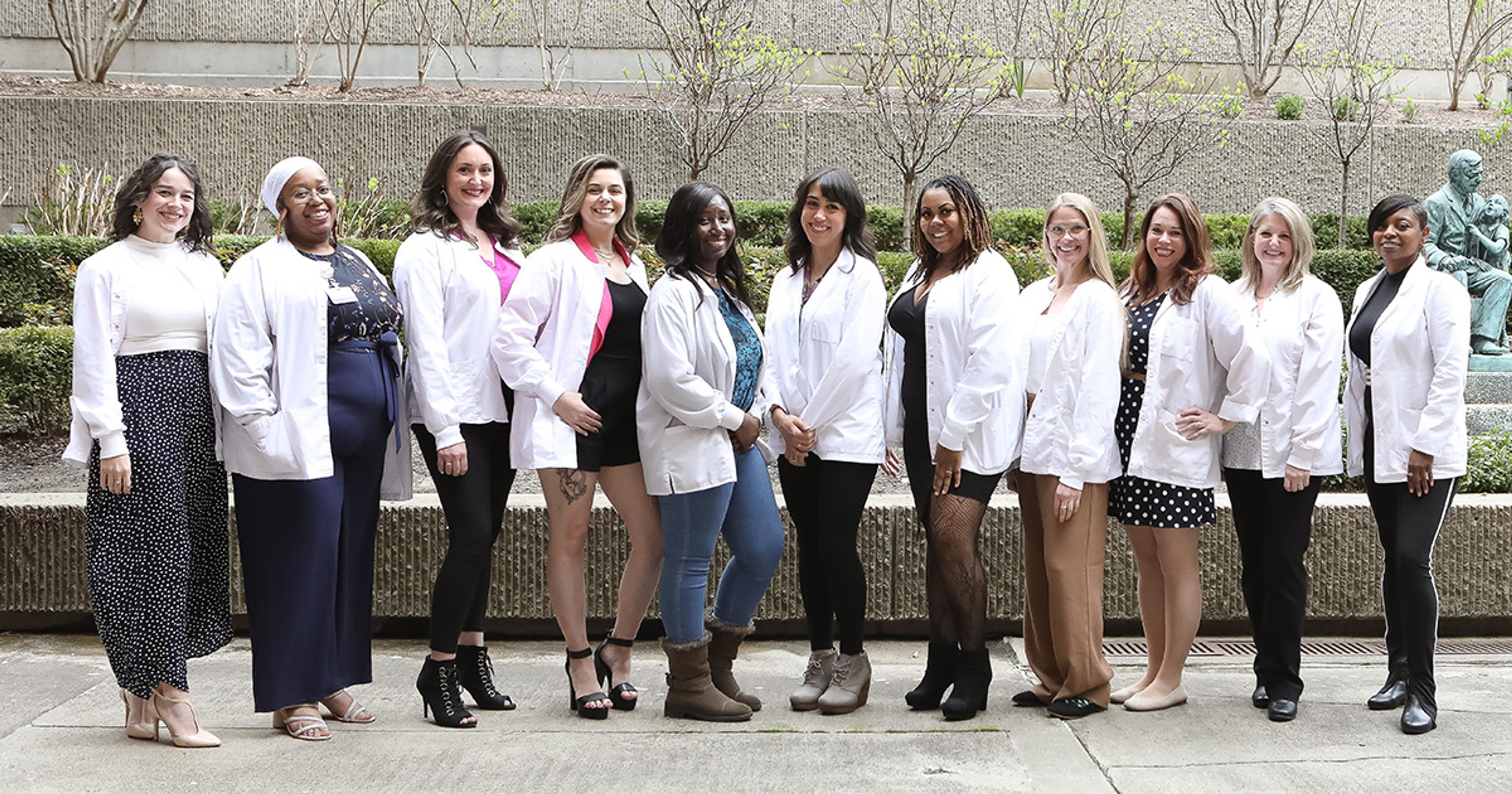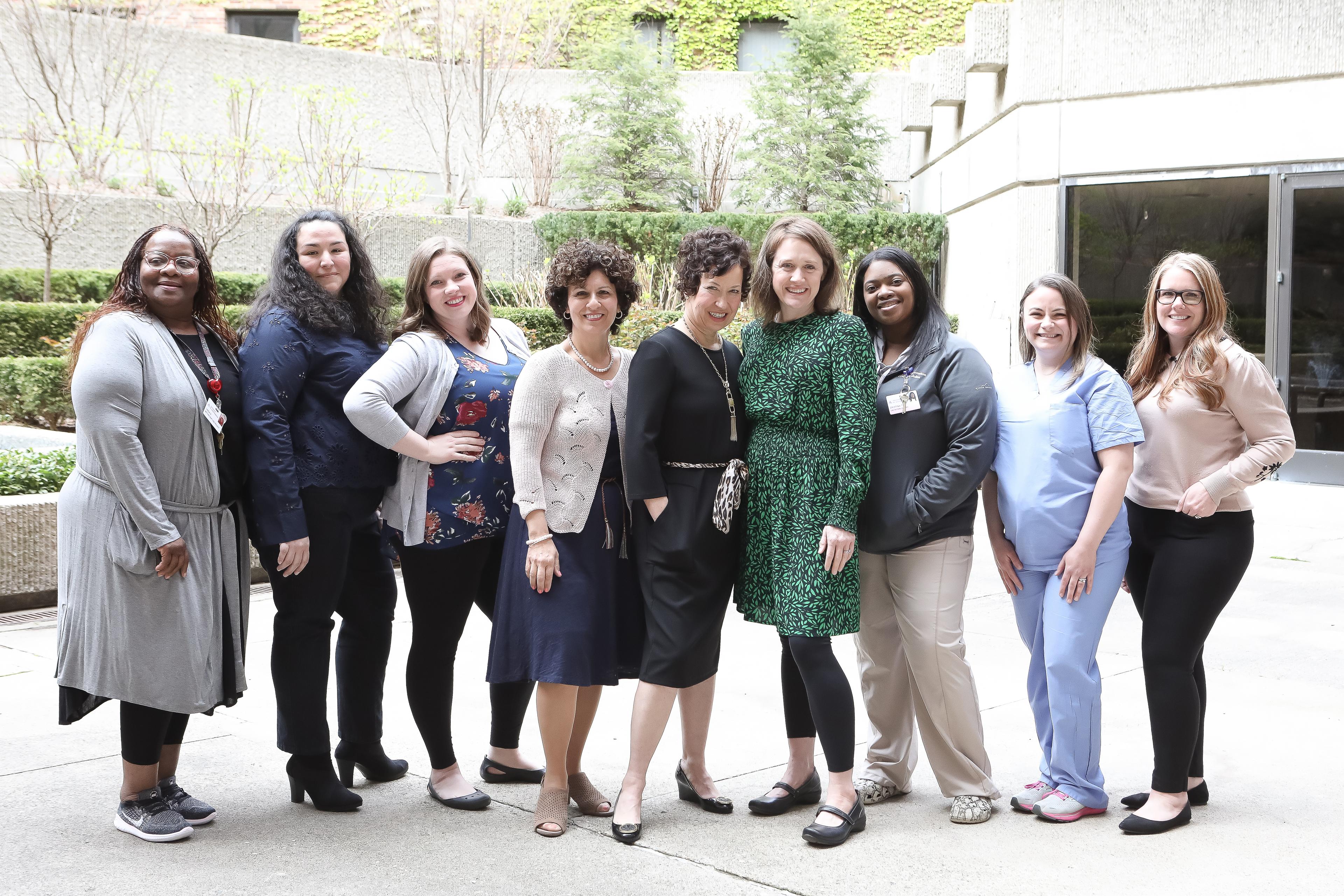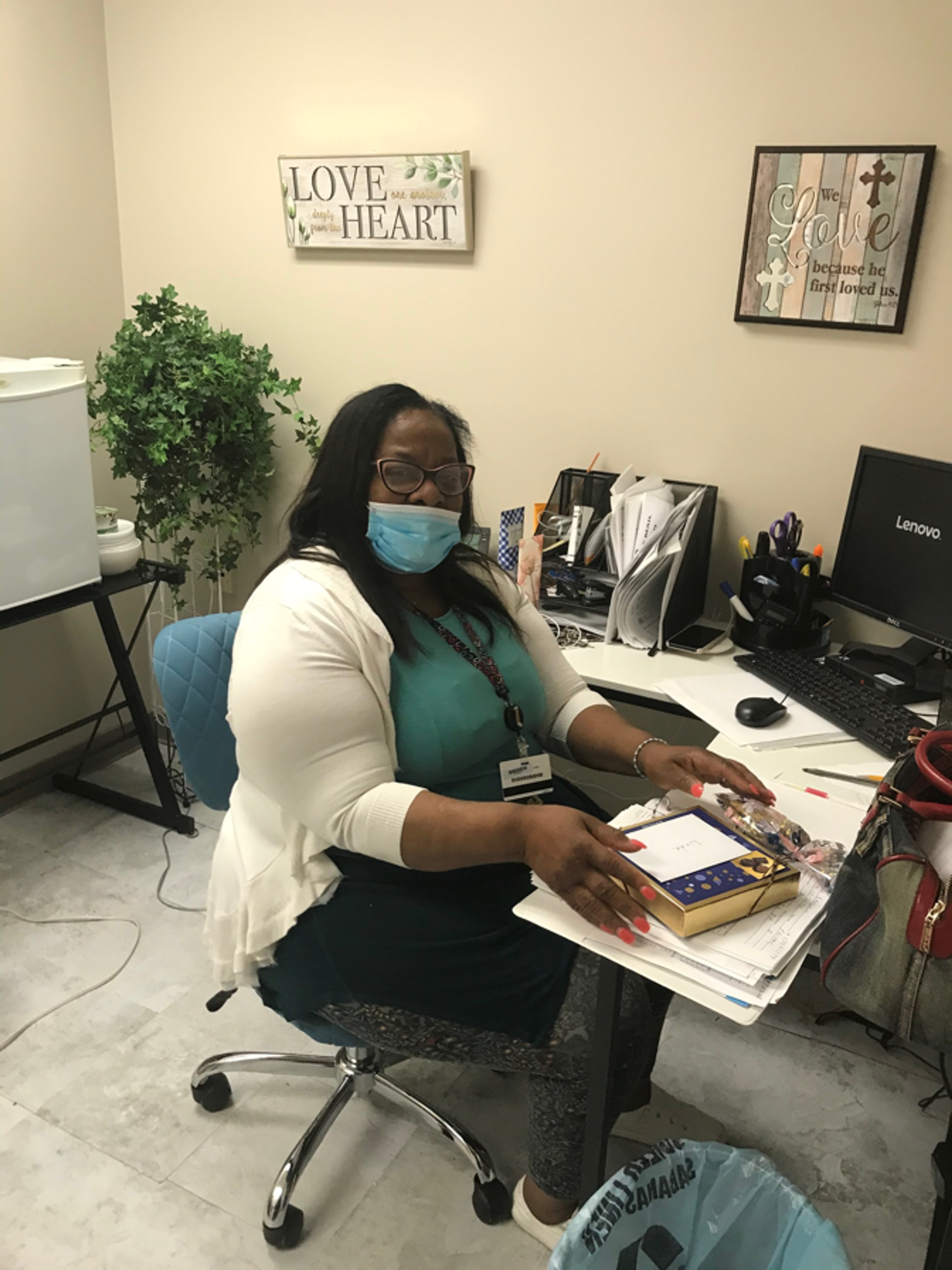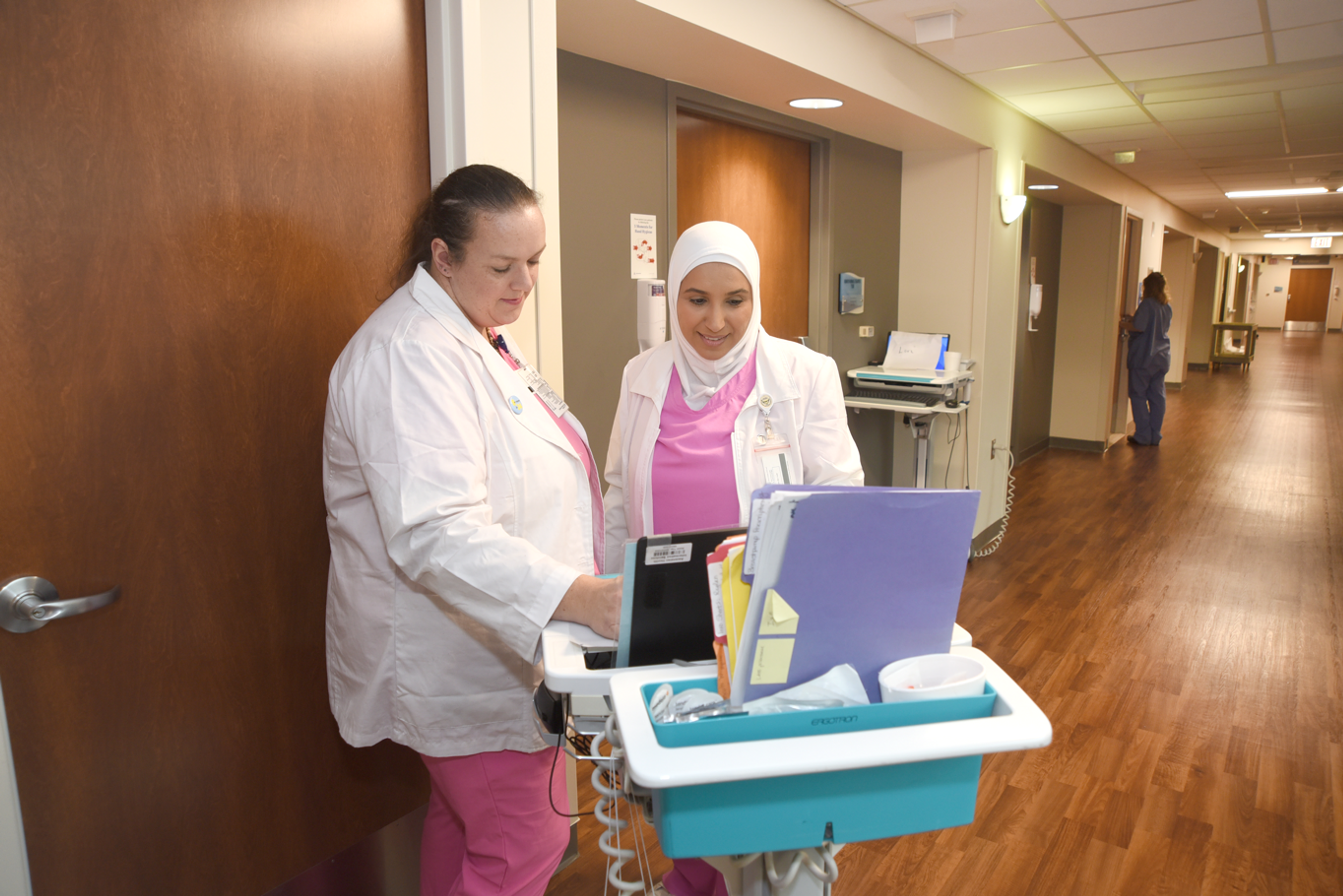Groundbreaking Program Impacts Breastfeeding Outcomes Among Black Families by Diversifying Southeast Michigan’s Lactation Consultant Field
Jake Newby
| 6 min read

For as long as breastfeeding rate data has been available in the United States, there have been disparities among Black families. Detroit’s Nicoyia Stewart, a Black mother of six, became a statistical outlier when she breastfed each of her children.
Then, earlier this year, Stewart became a trailblazer as one of a small handful of students to graduate from a first-of-its-kind program in the Midwest, designed to diversify Southeast Michigan’s lactation consultant field.
Four years ago, Ascension Michigan pediatrician Dr. Paula K. Schreck M.D., IBCLC, FABM, FAAP announced plans to launch the Lactation Consultant Program Diversity Project. Knowing that black infants are breastfed much less frequently than any other race – and for a much shorter period when breastfeeding is initiated – Dr. Schreck set out to chip away at the disparities and stigma.
“We wanted to create a pathway to lactation consultancy that was accessible to all, so that a person from the community with a high school diploma could afford to access the education and clinical training needed to sit for the test and pass the test,” said Dr. Schreck.

The program educates and certifies lactation consultants by providing them with classroom instruction and clinical experience. It’s meant to attract people of color and potential students from underserved areas of Southeast Michigan.
“Breastfeeding is not something that’s prevalent in my community,” Stewart said. “I feel like as a whole, Black people aren’t educated enough on breastfeeding. We’re getting mixed information and incorrect information about it. And I just wanted to be a part of a program that is helping spread the word to women of color that breastfeeding is awesome and is best for the baby. And that all the wives’ tales they hear, and stories they hear, may not necessarily be true for them.”
The goal of the Lactation Consultant Program is to make the region’s lactation workforce more racially congruent and in turn influence more Black mothers to breastfeed, knowing they’d receive support, education, and assistance from professionals they can relate to and identify with. As a graduate of the program, Stewart feels well-equipped to guide mothers through the breastfeeding process, especially those who might be apprehensive.
“Dr. Schreck is so thorough, and I’m honored that I was able to get into a class she taught,” said Stewart, who currently serves as a lactation consultant at Ascension Providence Hospital in Novi. “I learned so much that I feel like, even with my mentors here, I feel like I’m able to teach them some things. I feel very honored and privileged to have been in this program.”
How the BCBSM Foundation helped the program flourish
As project program director, Dr. Schreck brought Ascension St. John Hospital and Henry Ford College (HFC) together to establish Michigan’s first Lactation Consultant Program partnership. The accredited course at HFC qualifies graduates for the International Board of Lactation Consultant Examiners Pathway 2 certification exam.
In 2020, the program received a huge lift courtesy of the Blue Cross Blue Shield of Michigan Foundation’s $44,000 Community Health Matching Grant. Dr. Schreck sought the Foundation’s help to “level the playing field” and support the clinical operations of the program, which would otherwise result in clinical fees for students that can cost as much as $10,000.

“That clinical fee is not applicable to financial aid,” Dr. Schreck explained. “It requires that the student come up with the cash. So, I see a problem with that. Because we have a program that is not equitable and is only normally accessible to those with more money and those who can navigate the application to graduate school or a four-year university.”
Foundation funding for the clinical side of the accreditation process made it so that tuition for classroom instruction at HFC became the only academic cost for students enrolled in the program during the grant’s 24-month lifespan.
“That has really helped to make my program accessible and equitable, and the result is, the demographics of my program more closely reflect the community,” Dr. Schreck said. “In Michigan, 10% or less of the total number of lactation consultants identify as people of color. My program has graduated to date a population of women that approaches 60% women of color.”
With help from the BCBSM Foundation, the Lactation Consultant Program became the first accredited program in the Midwest, eighth in the U.S. and ninth in the world.

"This program addressed health equity in two ways; diversity in the lactation consultant field and improved access to lactation support for Black mothers, which in turn improves the health outcomes of black mothers and infants,” said Myra Tetteh, senior program officer with the BCBSM Foundation. “We’ve seen a marked increase in diversity across Southeast Michigan’s lactation consultant field, so we look forward to seeing the program achieve continued success in the future.”
The Foundation’s Community Health Matching grant also helped fund the following areas of the clinical side of the program, according to Dr. Schreck:
- A communication and marketing plan that allowed the program to recruit and grow.
- Additional coordinator time so students feel supported throughout their journey.
- Additional office hours and academic assistance.
- Additional supplies for students, including scrubs and textbooks.
- Stipends for guest faculty, which helps diversify faculty staff.
In its first year, the program featured only seven students. Now it’s doubled in size, with 14 students enrolled in the upcoming class. Reflecting on the past few years since the program was launched, Dr. Schreck is proud to see her former students like Stewart make a difference in their communities.
“The graduates of the Lactation Consultant Program are disrupting the lactation field in a good way in Southeast Michigan,” she said. “They are passionate. They have close ties with the community. They are working in The Special Supplemental Nutrition Program for Women, Infants, and Children (WIC) and home visiting, on the hospital you birthing centers. They are working in doctor’s offices, support groups and non-governmental, nonprofit organizations. Family by family, day by day and week by week, they will be the ones moving the needles on the breastfeeding outcomes and closing the disparities in our region .”
Visit the BCBSM Foundation website to learn more about the Community Health Matching Grant Program, including eligibility, proposal requirements, and more. And check out these Foundation stories to learn more about the incredible accomplishments made by Michigan nonprofits over the last few years:
- New Youth Peer Advocate at Detroit’s Ruth Ellis’s Center Offers Support, Relatability to At-Risk LGBTQ+ Young Adults
- Pontiac’s Latino Community Has a 'Guardian Angel' in Catholic Charities of Southeast Michigan’s Prevention Programs Supervisor
- Blue Water Area YMCA Promoting Physical Fitness, Decreasing Social Isolation Among Older Adults in Michigan’s Thumb
Photo credit: Dr. Paula Schreck/Ascension St. John/HFC





